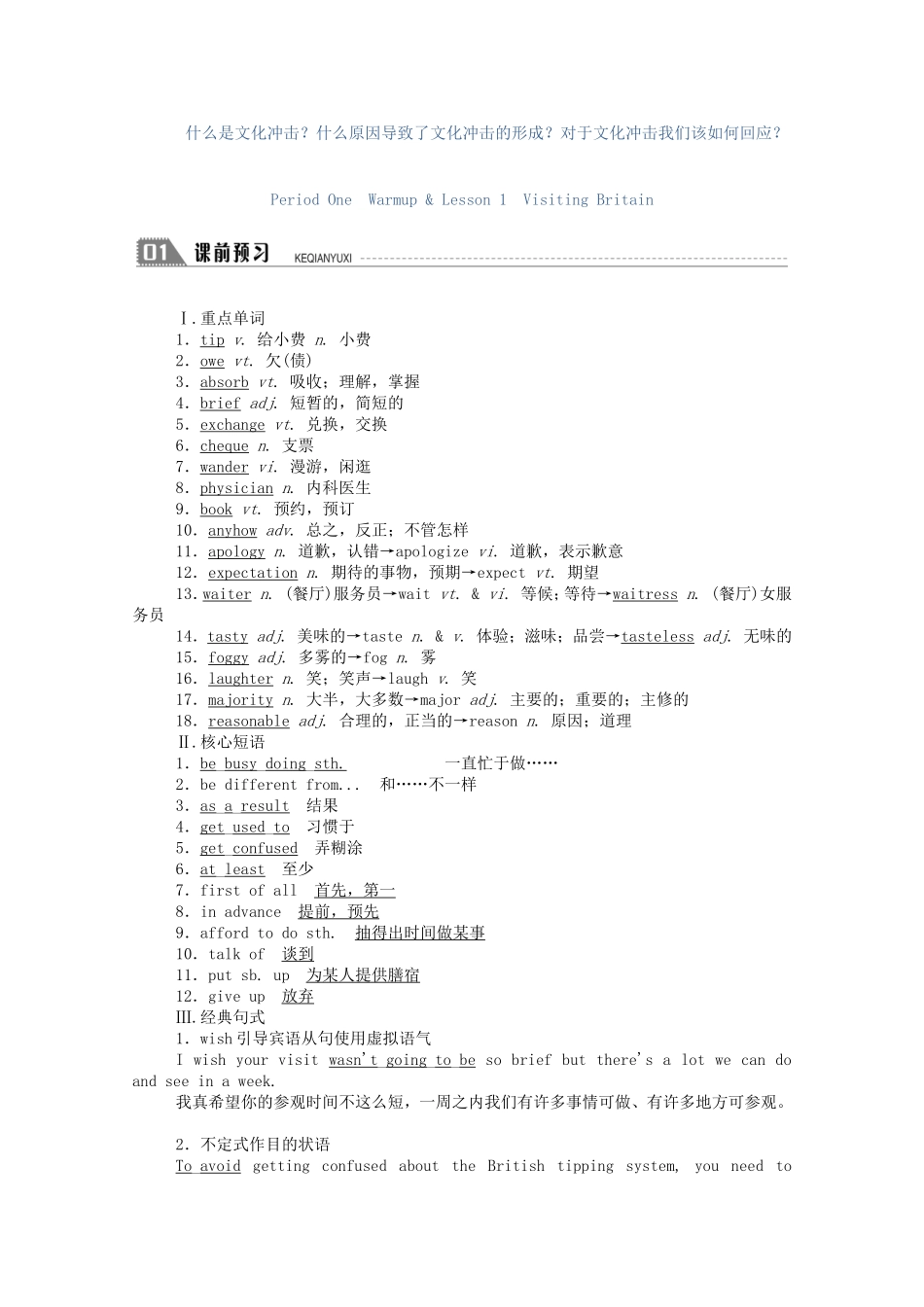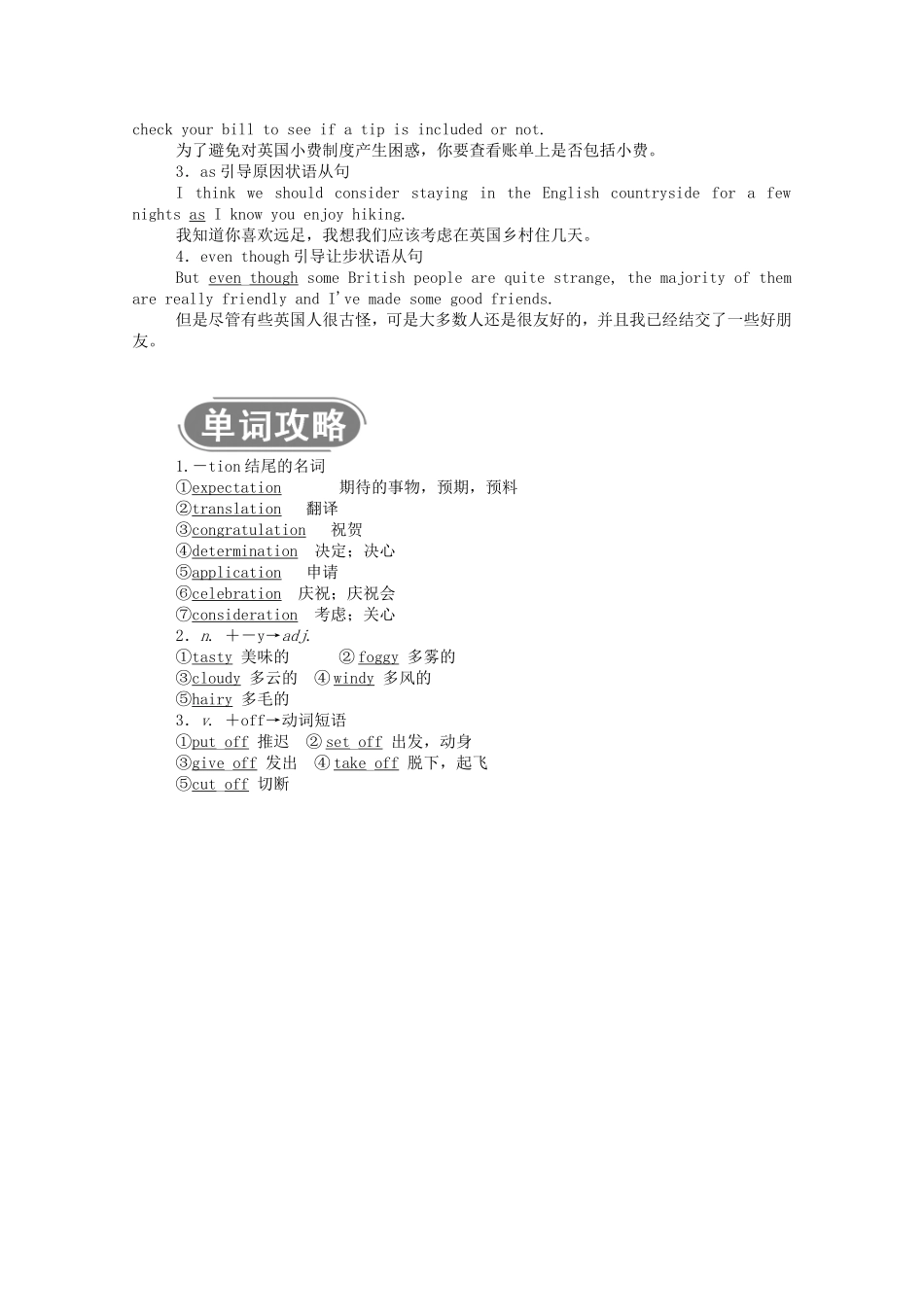Unit 12 Culture ShockExperts say that it is not easy to get used to life in a new culture. “Culture Shock” is the term specialists use when talking about the feelings that people have in a new environment. “There are three stages of culture shock,” say the specialists. In the first stage, the newcomers like their new environment. Then, when the fresh experience dies, they begin to hate the city, the country, the people and everything else. In the last stage, the newcomers begin to adjust to their surroundings and, as a result, enjoy their life more.There are some obvious factors in culture shock. The weather may be unpleasant. The customs may be different. The public service systems—the telephone, the post office or the transportation—may be difficult to work out. The simplest things seem to be big problems. The language may be difficult.Who feels culture shock? Everyone does in this way or that. But culture shock surprises most people. Very often the people having the worst culture shock are those who have never had any difficulties in their home countries and been successful in their communities. Coming to a new country, these people find they do not have the same established positions. They find themselves without a role, even without an identity. They have to build a new self-image.Culture shock gives rise to a feeling of disorientation ( 迷 惘 ). This feeling may be homesickness. When homesick, people feel like staying inside all the time. They want to protect themselves from the strange environment, and escape into their rooms for a sense of security. This escape does solve the problem of culture shock in the short term, but it does nothing to make the person familiar...


